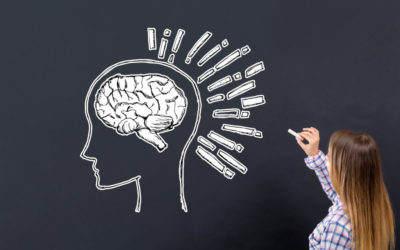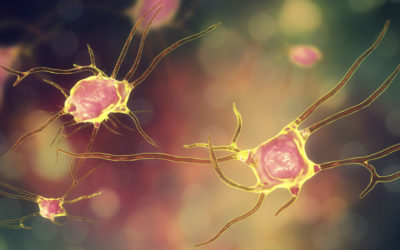
We’d probably all be happy to be a bit more creative — though research into our own opinions show that many people do actually consider themselves to be above average in creativity. An obvious self-bias.
This is where scientists who study creativity come in and find and research people who are truly creative — though creativity has long been studied there is relatively little research into the brains of creative people (and it is much harder and much more expensive to conduct).
In come UCLA Health scientists who have just published a study into the brain of creative people — known as big C creatives. The brain scanning was done on people who had been nominated by others in the creative industries as being particularly creative. What the researcher found is that:
-
- Exceptional creativity is associated with more random connectivity in the brain on the global scale
- Exceptional creativity therefore seems to use less efficient paths but connects distant brain regions through alternative if less efficient routes
- Exceptional creativity is however associated with higher efficiency local processing at rest
This suggests that the brains of those who are exceptionally creative as being wired differently or being used differently — of note is that it does not occur to me how this can be changed or learned (some other aspects of creativity can be learned). This suggest that being exceptionally creative is a natural predisposition.
I wonder if my brain is that creative? Probably not. I wouldn’t be writing summaries of scientific articles if it were. Alas!
Reference:
Ariana Anderson, Kevin Japardi, Kendra S. Knudsen, Susan Y. Bookheimer, Dara G. Ghahremani, Robert M. Bilder.
Big-C creativity in artists and scientists is associated with more random global but less random local fMRI functional connectivity.
Psychology of Aesthetics, Creativity, and the Arts, 2022
DOI: 10.1037/aca0000463
More Quick Hits
Correcting Others Improves Group Learning
Some interesting and counter-intuitive insights into effective group learning…
Air Pollution In Childhood Changes Brain Structure
Recent research has shown some worrying impacts of pollution on the brain…
Think Like a Kid to Learn Better?
Think like a kid may sound like a good piece of advice – but with some interesting twists…
Those Who Distrust Humans, Trust AI
We probably all know someone who is extremely distrustful of fellow human beings…
Watching TV With Your Child Can Help Cognitive Development
This is another study to show that there is no quick and easy answer to the question of screen time and children…
How Fear Gets Stuck in (Some) Brains
Fear is an important human emotion and essential to survival so not to be underestimated…
Your Brain Switches Between Remembering and Learning
Learning and memory are key functions of the brain and ones that attract a lot of attention and research…
How Daily Rhythms Help Your Brain Grow After Injury
Always nice to know that you brain can grow – and it is still met with surprise when I explain how this can happen…
The Seven Habits to Reduce Dementia
We would all like to age well remaining cognitively active into older and old age. I have reported multiple times…
Mind Over Matter – Regaining Movement
This is the type of study and insight I like. Kind of amazingly simple but effective










